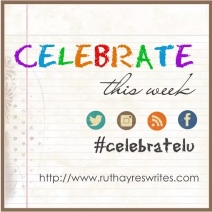
I know how important it is to ask questions. I know this deep in my bones. This week brought a couple of reminders of how important questions can be.
The first took place during a parent conference this week. I teach in a school where many of the parents do not ask questions. They show up at the conference, show a great deal of respect, or sometimes disengagement. I chalk up the latter to a mindset: “School was a difficult and painful place for me and I want to just get out of here.” They most often listen passively to what I have to say. My inquiry of, “Is there anything you are concerned about or anything you would like me to know about your child?” is often met with, “No, everything is fine.” Sometimes I get, “I’d like him to read more,” or, “I know she has to work harder.” We don’t get very deep. I used to work at the other half of my school which is a magnet school. The parents in my twenty-some years of conferences there had lots of questions. Demanding, concerned, sometimes even confrontational.
The tough questions made me a better teacher. Even if I knew the concern was baseless or exaggerated, at its root lied a grain of truth that, if paid attention to, brought me to a better understanding of how to teach that child. Self-reflection is a healthy and necessary part of teaching. We know this. But sometimes I hear teachers complain about parents and their hard questions without seeing the gift it can offer.
This week a parent’s inquiry brought me to the surprising revelation that I need to pay more attention to her son’s contributions in class. I was frustrated that I didn’t have a clear answer for her, and I told her I would do a better job of paying attention to him. I am thankful for her tough question and it got me to thinking about how much I miss the challenge of demanding and inquiring parents. If you work with a population of children whose parents are often unable to advocate for their children, it is easy to become complacent. You have to form the habit of asking the tough questions of yourself.
Which leads me to reminder number two. I have been frustrated with my inability to help one of my students get his thoughts onto the page. He listens attentively during read aloud and has significant ideas to contribute, but writing it down proves extremely difficult. He and I played around with Dragon Dictation and another app I found but the iPad kept crashing and we couldn’t figure out how to get the text off the app and onto paper. And remember, 32 other students were waiting for/actively demanding my attention during the time each day he and I puzzled it out. And we had no real success to speak of. Argghh.
I woke up this morning and asked, “How can this be so flipping difficult? Why can’t I figure out a speech to text solution that will work in my classroom?” And I googled “Text to speech, elementary classroom” and found my answer. You probably already know this but Google Docs has a voice-typing tool that will do exactly what I want. EUREKA!
I am celebrating questions and inquiries that lead to more inquiries and sometimes answers. Thanks to Ruth Ayers for the reminder to celebrate. Lots more celebrations are here.
